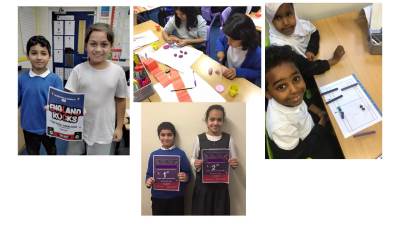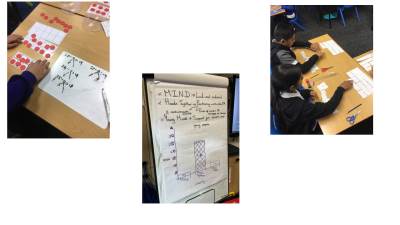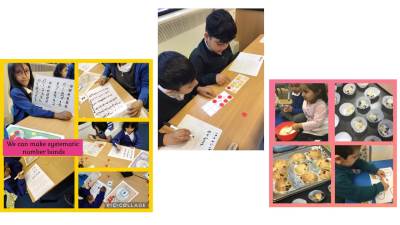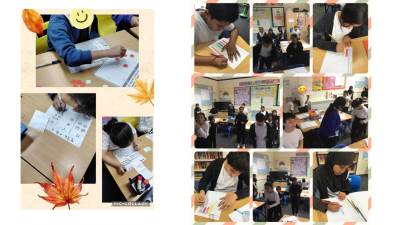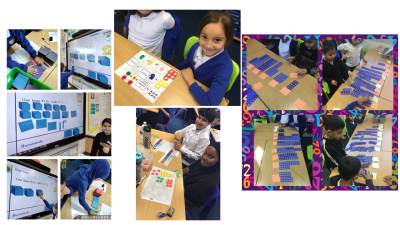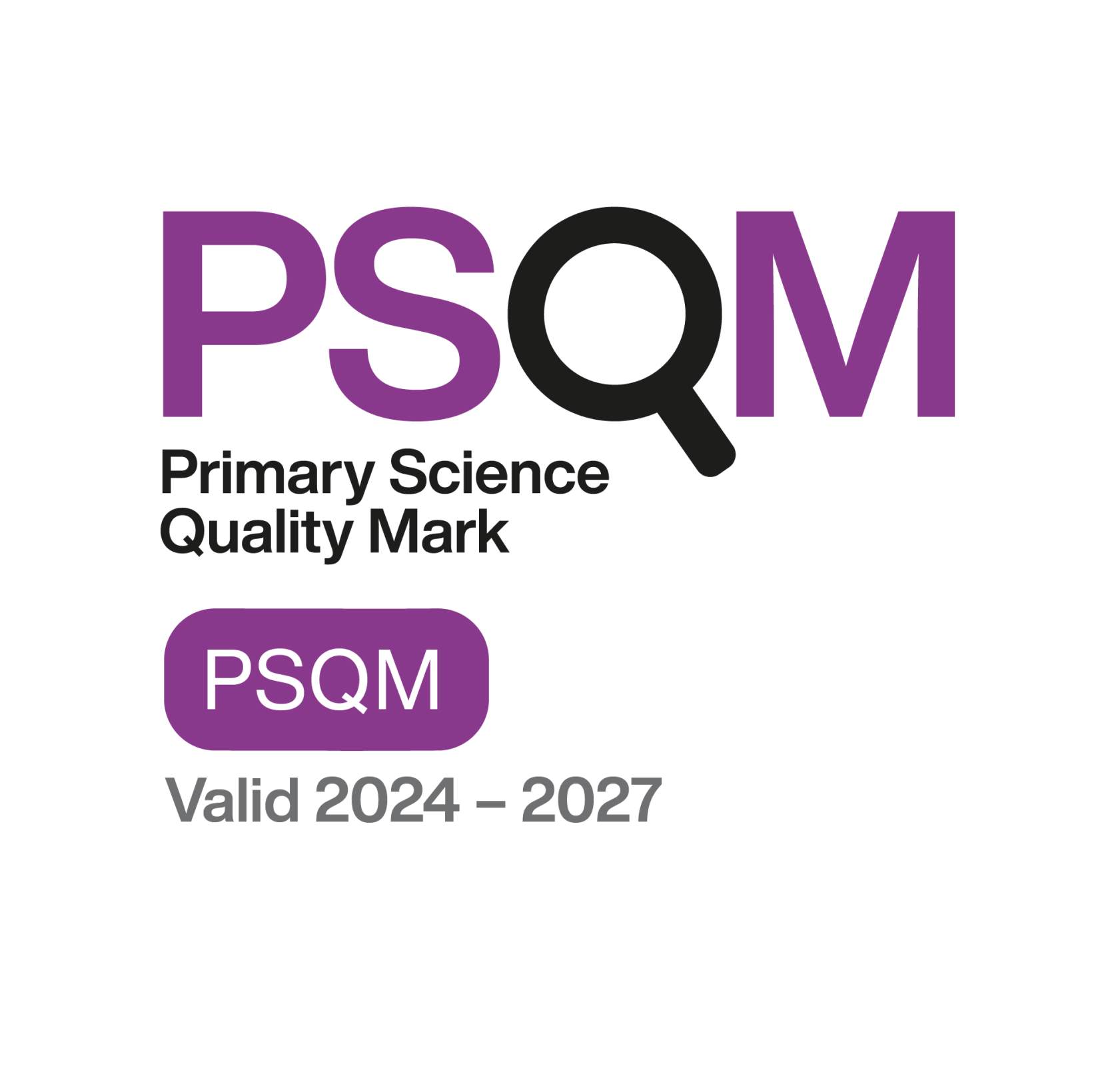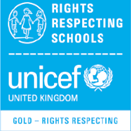Mathematics
Great maths teaching makes learning visual; it provokes deep thoughts and discussion; it captivates.
At Alston Primary School, we aim to equip pupils with the tools to understand maths and use it with confidence. These tools include logical reasoning, problem solving and the ability to think in abstract ways. Mathematics is integral to all aspects of life; with this in mind, we endeavour to ensure that children develop a healthy and enthusiastic attitude towards mathematics that will always stay with them.
The aims of our maths teaching are aligned with the aims of the National Curriculum: fluency, reasoning and problem solving. Children need to learn basic number facts and acquire fluency in procedures, alongside developing conceptual understanding if they are going to be able to tackle increasingly complex problems in life and later on in the workplace.
We recognise the importance of developing a ‘growth mindset’. We believe that all children are capable of learning maths, given sufficient time, good teaching, appropriate resources and effort. We aim to ensure that all children leave us with sound mathematical skills that will help to realise their potential.
Our purpose of education:
We always want to provide our pupils with equal opportunities and through mathematics, we ensure that the school meets the needs of all; taking account of gender, ethnicity, culture, religion, language, age, ability, disability and social circumstances. It is important that in this school we meet the diverse needs of pupils to ensure inclusion for all and that all pupils are prepared for full participation in a multi-ethnic society. We aim to provide our pupils with a broad and balanced curriculum that is suited to the needs of all children; giving them access to the knowledge and skills needed in order for them to succeed in higher education and later life. We believe everyone can ‘do maths’ and do it well!
We are proud to be a Rights Respecting School and our purpose links greatly to Article 28 (Every child has the right to an education) and Article 29 (Education must develop every child’s personality, talents and abilities to the full).
Curriculum content:
In EYFS, we follow the educational programme for mathematics from the statutory framework, within this there is a strong commitment to ensuring the confident development of number sense through subitising. Children are encouraged to develop positive attitudes and interests in mathematics and they will begin to look for patterns and relationships.
In Key Stage 1 and 2 we have a CPA approach (concrete, pictorial, abstract) within all maths lessons and this is carefully planned for alongside the National Curriculum for Mathematics (2014). All teachers ensure that they are aware of the intent of their planning and have identified the learning outcome and know how this is best achieved through the consideration of the learning journey, use of appropriate resources, scaffolding and challenge.
The CPA approach is embedded in all learning journeys:
· Concrete representation- a pupil is first introduced to an idea or a skill by acting it out with real objects. This is a 'hands on' component using real objects and it is the foundation for conceptual understanding.
· Pictorial representation- a pupil has sufficiently understood the hands-on experiences performed and can now relate them to representations, such as a diagram or picture of the problem.
· Abstract representation - a pupil is now capable of representing problems by using mathematical notation, for example: 12 ÷ 2 = 6.
Pupils in each year group will build on their prior learning in 4 sequenced lessons each week and will have the opportunity to practise arithmetic and mental maths skills weekly. We believe this will support pupils to apply their basic mathematic skills to problem solving and reasoning questions and over the year, they will be able to include more mathematical vocabulary in their verbal and written answers.
Each maths lesson is structured to teach fluency, problem solving and reasoning skills.
Fluency: Fluency is knowing key mathematical facts and being able to recall them quickly and accurately. Fluency is often associated to just arithmetic questions. But for children to master fluency, they need to apply the skill they’ve learnt to different contexts and be able to choose the most suitable method for a particular problem.
Problem Solving: Problem solving is not just children answering word problems. If a child has a readily available method to answer the word problem, then no problem solving has taken place. It is about children applying their problem-solving skills to answer unfamiliar problems. For example, ‘How many ways can you find to…...?’ or ‘Circle the mistake/odd one out’.
Reasoning: Reasoning is applying logical thinking to solve which method to use and be able to explain why they have used this method. Can children explain/describe: why a particular method has been used? Or why they agree/disagree with someone else’s answer/method? The children know these skills as ‘Ready, Steady and Go’.
Examples of Ready, Steady, Go:
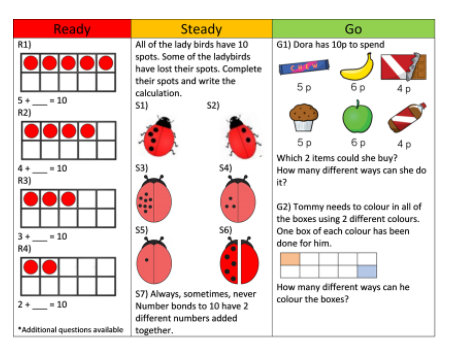
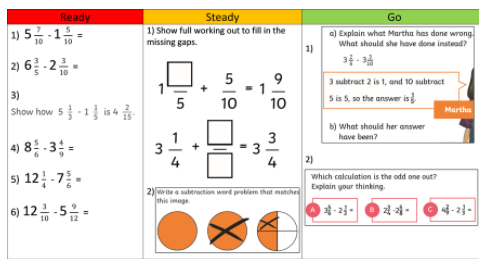
Maths Policies
-
1 Maths Intent Implementation and Impact updated
download_for_offline
download_for_offline1 Maths Intent Implementation and Impact updated
- Final Trust Policies Leigh Trust Calculation Policy download_for_offline
download_for_offlineFinal Trust Policies Leigh Trust Calculation Policy
- Final Trust Policies Mental Strategies Progression download_for_offline
download_for_offlineFinal Trust Policies Mental Strategies Progression
- Maths End Points download_for_offline
download_for_offlineMaths End Points
- Maths long term overview download_for_offline
download_for_offlineMaths long term overview
Useful Websites
Times Tables Rock Stars: Play (ttrockstars.com)
NRICH - Mathematics Resources for Teachers, Parents and Students to Enrich Learning (maths.org)
Maths Gallery
↑ - Final Trust Policies Leigh Trust Calculation Policy download_for_offline



